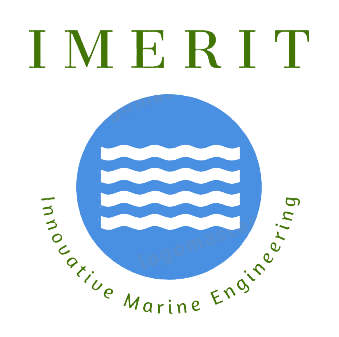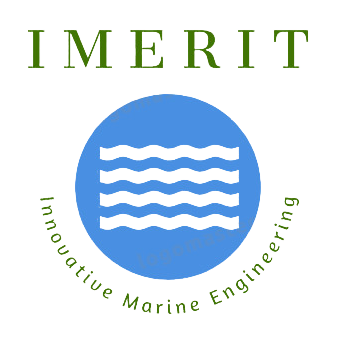iMERIT PROGRAM

Research Themes
The focus of the iMERIT program is to facilitate effective collaborations to address the challenges in ocean exploration. The trainees in the iMERIT program will gain experience through four research themes:
AUTONOMOUS MARINE SYSTEMS (AMS)
(Drs. Gu, Ngo and Seto)
The main research areas are summarized as follows:
a) Autonomous Marine Systems (AMS) development: Increasing intelligent autonomy to make autonomous marine systems ‘smarter’ so they can operate at considerable range from a ship or operator and thus increase the persistence for a wide range of applications.
b) Tool development for AMS system: The iMerit program will develop all kinds of tools for an on-board-vehicle autonomy framework that allows for in-situ decision-making, adapting and re-planning of the AMS mission in light of the dynamic ocean environment, and fault-tolerance of the vehicle.
c) AMS system validation: The iMerit program will validate the AMS system in the arctic marine environment. For example, navigation at high latitudes cannot only rely on a magnetic compass whether under, on, or above water. Students in the iMerit CREATE program will have the opportunity to address the issues related to AMS design and development, tool development and system verification.
Acoustic, fiber optical, and in-situ sensing
(Drs. Barclay, Chen, Ponomarenko, and Zedel)
The main research areas in Theme II are as follows:
a) Acoustic scattering: The iMerit trainees will learn to solve direct and inverse scattering problems to identify distinguishing signatures of physical and biological scatters, and hardware and software design concepts relevant to modern active acoustic systems and transducers.
b) Underwater sensing, communication, and networks: Trainees will gain in-depth knowledge of ocean acoustics applied to sensing and communications, through both research and a new graduate course in acoustic and fiber optical sensors and networks, covering theoretical and numerical modeling techniques for acoustic and optic wave propagation in ocean environments.
c) Optical sensor design: The iMerit trainees will learn how to design fiber optical sensors and sensor networks for marine applications. The iMerit team will have the opportunity to engage a world expert, Prof. Govind P. Agrawal from the Institute of Optics, University of Rochester, U.S.A., as a collaborator and a training infrastructure provider
Marine electronics and controls
(Drs. Dubay, El-Sankary, Gu, and Ngo)
The main research areas in Theme III are as follows:
a) Development of a new high precision configurable underwater data acquisition platform: Trainees will develop knowledge on the design of low power configurable data acquisition electronics that is able to operate in underwater harsh environment. This platform will be equipped with in-situ sensors to measure water parameters (e.g. salinity, conductivity, pH, oxygen, depth, etc.) for long-term deployment missions.
b) Design firmware and real time operating system: Trainees will gain software and firmware knowledge to tailor real time operating systems for the underwater acquisition platform. This includes design of data capture, processing, and analysis software.
c) Implement advanced control strategies for AUV and gliders: The platform will be programmable with advanced controlled strategies developed in Theme I.
Big Data Analytics for Marine Research
(Drs. Peng, Ye, and Zedel)
The main research areas in Theme III are as follows:
a) Marine biology: With the large number of marine sensors, we can use data analytic techniques to study various aspects of marine biology. For example, we can approximately track the lobsters that appear in Maritime waters. The quality of the ocean water in the Atlantic region can also be monitored continuously.
b) Fishing activity monitoring: With the deployed marine sensors, we can monitor and analyze the fishing activities in Maritime waters. The analysis results can help the government and related agencies find out problems and make necessary decisions accordingly. For instance, if a popular fishing spot is rarely visited over years, then it is likely that there is a problem with the spot.
c) Impact of climate change: By collecting the sensor data about coastline shape, air temperature, wind speed, and tidal information over multiple years, we can analyze the impact of climate change on ocean coast, leading to proper policies for protecting the environment in the long term.
Interdisciplinary research
Interdisciplinary courses and dissertation workshops will be offered to facilitate interdisciplinary research and training. In addition to the existing courses, four interdisciplinary courses will be developed. The seminar courses are mandatory for all iMERIT students. The other three courses will be elective and can be taken by students involved in the research areas of marine acoustics, marine sensing, and autonomous marine system (AMS). A brief description of the program related courses is as follows.
a) Acoustical and optical sensing for ocean exploration.
b) Ocean acoustics
c) Control, electronics, and communications for marine applications.
d) Engineering project management and entrepreneurship seminar
Mobility
National and international mobility is required to give students access to unique training. For example, ship time provided will enable all iMERIT trainees to gain experience at sea. In addition, the students will have opportunities to use the Marine Environment Stimulation System at Shandong University China, and fiber optical lab at the University of Rochester, U.S.A. All iMERIT students are required to travel among our regional partners to participate in the summer school and annual iMERIT conference. At least 50 per cent of iMERIT trainees are expected to travel among our international partners and all iMERIT PhD candidates will be expected to present their results, at least once a year, either at an international conference or at a seminar at one of our international partners. Mobility is essential to well-rounded HQP and it will prepare them well for their respective careers.
